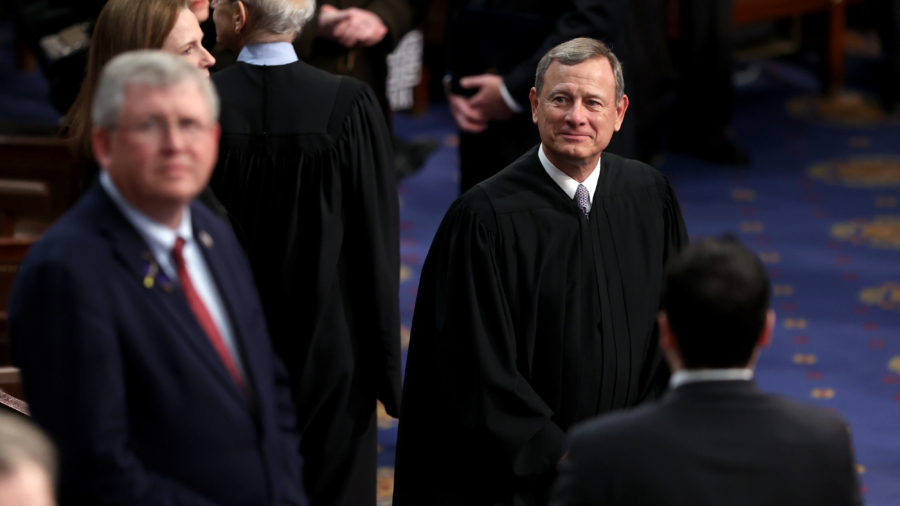The U.S. Supreme Court on July 19 cleared the way for Indiana to enforce a law that requires parents be notified when their children seek abortions.
The court in June overturned Roe v. Wade, the 1973 ruling that blocked states from imposing many abortion restrictions. But the decision has not been formally issued, which means Indiana has not been able to enforce its 2017 parental notification law.
Indiana filed an emergency application with the court on July 13.
“Delay would only serve to prevent enforcement of a duly enacted state statute designed to protect minors, families, and the unborn,” state lawyers said.
Chief Justice John Roberts, a George W. Bush appointee, granted the request on Monday.
He ordered the court’s ruling in Dobbs v. Jackson Women’s Health Organization to be issued immediately to the U.S. Court of Appeals for the Seventh Circuit.
The ruling was transmitted to the appeals court on Tuesday.
The appeals court had been asked to overturn the block on enforcing the law in light of the Supreme Court striking down Roe v. Wade. But the appeals court said that since the judgment had not been issued, it would not rule on the motion until it was.
The court is expected to rule on the motion in the coming days after receiving the ruling.
Parental Notification Law
Under the parental notification law, a parent, legal guardian, or custodian of a pregnant minor “is entitled to receive notice” of the minor’s intent to obtain an abortion before an abortion is performed.
Indiana Attorney General Todd Rokita, a Republican, in an earlier statement praised how the Supreme Court’s Dobbs ruling would affect the state’s laws.
“Following the landmark Dobbs decision, we eagerly anticipate clearer paths for Indiana’s commonsense laws protecting unborn children and their mothers,” he said in the statement. “We are grateful for the new day that has dawned, and we will remain steadfast in our fight for life.”
Planned Parenthood sued over the law after it was passed in 2017, alleging it was unconstitutional and “creates enormous obstacles to young women who have legitimate reasons to keep their abortion decision, or their unsuccessful attempt to obtain a bypass, confidential.”
U.S. District Judge Sarah Evans Barker, an Obama appointee, agreed, and entered a preliminary injunction, and the appeals court upheld the ruling.
But Barker referenced Roe v. Wade in siding with the plaintiffs, citing how the ruling said the U.S. Constitution’s Fourteenth Amendment protections are “broad enough to encompass a woman’s decision whether or not to terminate her pregnancy.” Once the ruling was struck down, it opened the decision up to fresh scrutiny,
With the ruling, “the district court’s preliminary injunction against enforcement of Indiana Code section 16-34-2-4 can no longer stand,” Indiana Solicitor General Thomas Fisher told the appeals court.
He said that Planned Parenthood lawyers do not oppose the motion to vacate the injunction.
From The Epoch Times


